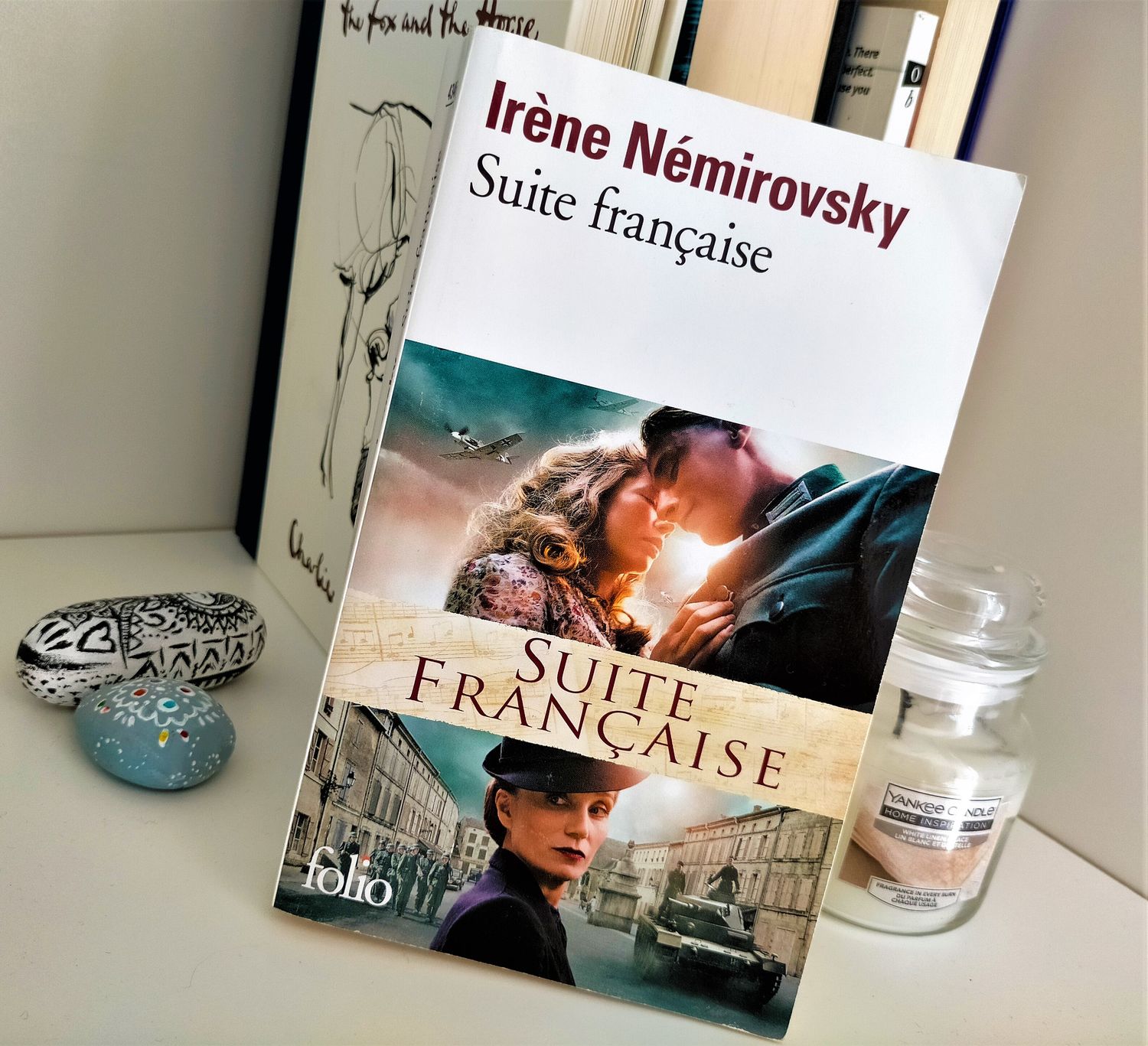‘Pour soulever un poids si lourd Sisyphe, il faudrait ton courage. Je ne manque pas de cœur à l’ouvrage Mais le but est long et le temps est court.’ [‘To lift such a heavy weight Sisyphus, you will need all your courage. I do not lack the courage to complete the task But the end is far and time is short.’]
Le Vin de solitude Irène Némirovsky
On the 28th of June 1941, Irène Némirovsky wrote these lines in her notebook. She was in the process of writing her novel sequence, set during the German occupation of France and spanning five sections, which she hoped would convey the magnitude of the events that were unfolding around her. The first two completed sections were published together as Suite Française.
The first part of the book, Tempête en juin [Storm in June], resembles a series of vignettes that follow a group of Parisians as they flee the German advance on the capital. Amidst the panic and chaos that ensue, some of the characters strive to maintain their privilege, others simply struggle for survival. But the richness and depth of all these characters create a sense of ‘presentness’, as if you really are trudging along in the dust beside them, as the flood of refugees inundates the French countryside.
Némirovsky’s picture of the 1940 exodus unearths the ugliest aspects of human nature, and it is brutally devastating in its honesty: Madame Péricand, whose generosity only lasts as long as it costs her nothing, is so desperate to escape the falling bombs with the family jewels that she leaves her elderly father-in-law behind in the flames; Charles Langelet abuses the trust of a stranger to siphon the petrol from his car; the writer Corte uses his name to procure himself an indulgent dinner while others around him go hungry, only for it to be snatched from his hands by a man wanting to feed his own family. The Michauds and the Labaries are almost alone in their kindness – it’s in their characters that we see some semblance of humanity, a recognition for the sufferings of others.
Inspired by the symphonies of Beethoven, Némirovsky takes the Italian term ‘dolce’, often used in musical terminology, for the title of her second section. Meaning ‘sweet’ or ‘sweetly’, Dolce depicts the strange peace that descends on the small town of Bussy during the first months of the German occupation. Lucile Angellier lives uneasily together with her mother-in-law and the void left by her unfaithful husband, who has been taken a prisoner of war. When German commander Bruno von Falk is billeted in their house, she feels drawn against her will to his warmth, his companionship. Yet, despite the outward appearance of tranquillity, it is impossible to escape the fact that they are at war and he is her enemy.
One of the most remarkable aspects of Dolce is the profound humanity that Némirovsky affords the German soldiers: despite their superficial differences, their close proximity forces the French villagers to view them as human beings rather than symbols of a nation they despise. As a reader, I really felt for Bruno who simply longed for peace, the time to pursue his passion for music, and the freedom to love. There’s a beautiful passage in the book where Lucile realises that the true tragedy of war is the sacrifice of the individual for the sake of the collective: ‘The individual or society? […] What trickery! What vanity! […] Yet this music, the sound of this rain on the windows, the great mournful creaking of the cedar tree in the garden outside, this moment, so tender, so strange in the middle of war, this will never change, not this. This is for ever…’
It’s these moments of tender hopefulness amid the violation of war that constitute the vast achievement of Suite Française. Yet, it is in fact an unfinished work. Irène Némirovsky never had the opportunity to complete her novel, for her own story is as heartrending as that of her characters.
She was born in Kiev in 1903 and her childhood was one of, if not happiness, then prosperity. However, in the aftermath of the Bolshevik Revolution of 1917, many Jewish families were forced to flee Russia, and Némirovsky eventually ended up in Paris. She had an impeccable command of French, having been taught by a governess as she was growing up, and this became the language that she would use to begin her writing career.
“it’s in their characters that we see some semblance of humanity”
When she began drafting Suite Française, she was already known as a celebrated novelist in France. Her work reflects the multicultural nature of her upbringing, and the mix of literary traditions that influenced her. For example, her lyrical descriptions of the rural French landscape are reminiscent of Turgenev’s Sketches from a Hunter’s Album, while the impersonal, ironic tone with which she depicts the self-interest of society is very similar to that of Flaubert. Yet, it was Tolstoy’s War and Peace in particular that provided her with a model for Suite Française. When war broke out, Némirovsky intended to write her own panoramic novel sequence within the context of the German occupation of France. Her notes on the composition of the work (included as an appendix in the book) show how convinced she was that she had the potential to create a true masterpiece, and how tirelessly she worked, despite the increasing doubt that she would ever get the chance to complete it.
“her own story is as heartrending as that of her characters”
Little more than a year after she wrote the above poem in her notebook, Némirovsky was arrested for her Jewish origins and taken to Pithiviers concentration camp. From there, she was deported to Auschwitz, where she died on the 17th of August 1942. The appendix shows how her husband, Michel Epstein, appealed to the authorities, begging for her release, but he too was deported to Auschwitz on the 6th of November and sent to the gas chamber on arrival.
The manuscript containing the first two parts of Suite Française was preserved by her daughter, Denise Epstein, who had kept her mother’s notebook with her each time that she and her younger sister were moved to a new hiding place. It was only 60 years later that she read it and discovered, not a diary as she had previously supposed, but a novel, which she had published in 2004.
Understanding the story behind Suite Française made for an extremely moving reading experience. Yet, what I found most remarkable about Némirovsky’s book is the profound perception of the work, even in its incomplete state. You would think that her comments on the nature of war and humanity stem from years of reflection, when in fact they were written directly as events were unfolding around her. The vast accomplishment of the work suggests that, had she had the time to complete it, Suite Française really would have become the masterpiece that she had envisaged it would be.


